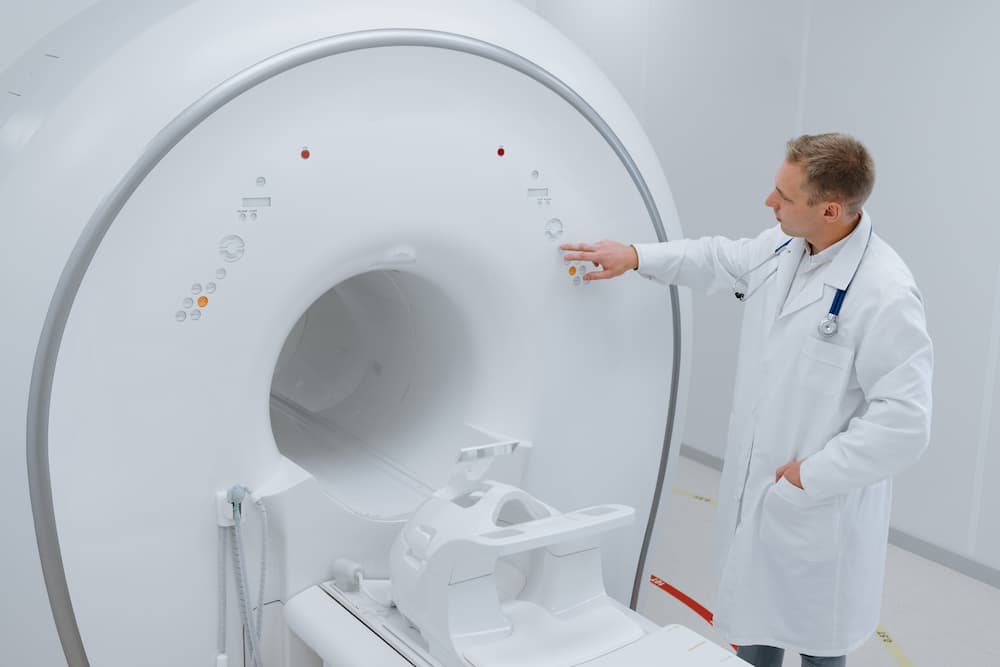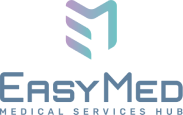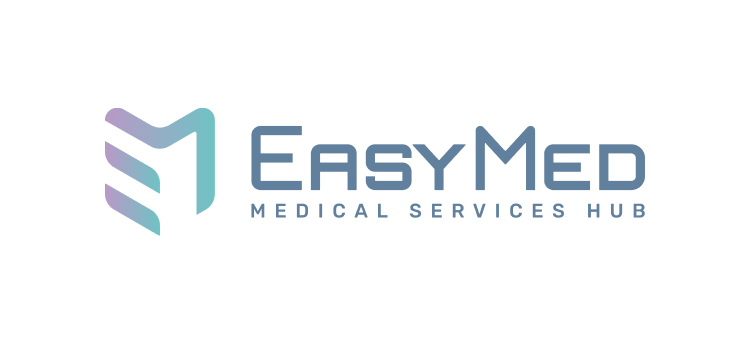
Magnetic resonance imaging of the heart
Magnetic resonance imaging of the heart is an innovative diagnostic method that allows you to obtain detailed images of the heart and its structures without ionizing radiation. This procedure is of key importance for diagnosing and treating cardiac diseases.
Дополнительные процедуры:
- Лабораторный анализ мочи
- Элемент списка #2
- Элемент списка #3
MRI of the heart with EasyMed
EasyMed acts as a reliable assistant, providing a prompt search for clinics in Israel for cardiac MRI. We offer full support at all stages of the diagnosis, from the application to the receipt of the results, ensuring the convenience and efficiency of the process.
What does a cardiac MRI scan show?
Cardiac magnetic resonance imaging (MRI) is a highly accurate, non-invasive diagnostic method that provides a detailed image of the heart’s structures and nearby vessels. This procedure plays a key role in detecting and evaluating a wide range of heart diseases:
- Structural abnormalities of the heart: detection of congenital or acquired anomalies of the cardiac structure.
- Coronary heart disease: Assessment of the extent of damage to the heart muscle due to insufficient blood supply.
- Cardiomyopathies: diagnosis of various cardiomyopathies, including hypertrophic and dilated.
- Heart failure: An assessment of the functional status of the heart muscle and its ability to contract.
- Cardiac tumors: Detection and evaluation of primary and metastatic heart tumors.
- Inflammatory diseases: diagnosis of myocarditis, endocarditis and pericarditis.
MRI of the heart allows for a comprehensive analysis of the functional and anatomical state of the heart, providing the necessary information for diagnosis, treatment planning, and monitoring the effectiveness of therapy. This is especially important for patients with chronic heart disease or if serious heart pathologies are suspected.
Indications for cardiac MRI
Cardiac magnetic resonance imaging (cardiac MRI) is essential for evaluating various heart conditions, including heart defects, cardiomyopathies, coronary artery disease, and inflammatory heart disease.
Indications for cardiac MRI:
- Detection and assessment of the extent of heart defects, including congenital and acquired defects.
- Assessment of structural and functional changes in the myocardium, including cardiomyopathies.
- Investigation of the consequences of coronary heart disease, including assessment of the size and location of myocardial infarctions.
- Diagnosis of myocarditis and other inflammatory heart diseases.
- Cardiac monitoring in patients with chronic diseases.
Importantly! Before the cardiac MRI procedure, the patient must be provided with a complete medical history and a referral from the doctor. This will determine the most appropriate scanning parameters and ensure an accurate interpretation of the results, taking into account the patient’s individual characteristics and medical history.
Preparation for the procedure
Preparation for cardiac MRI includes the following steps:
- It is important to bring all available medical records related to heart disease, including the results of previous examinations.
- All metal objects such as jewelry, watches, piercings, and clothing items that contain metal must be removed before the procedure.
- Hearing aids, dentures, and other removable medical devices must be removed before the MRI.
- It is necessary to inform the doctor about all diseases and allergies, especially reactions to contrast agents if they are used during the MRI.
- If a contrast agent is used, it may be necessary to abstain from food and liquids for several hours before the examination.
Importantly! Before the cardiac MRI procedure, EasyMed clients will receive additional advice from our managers about preparation and restrictions to ensure maximum comfort and awareness.
Cardiac MRI Process
Before an MRI of the heart, the patient must remove all metal objects, as they can affect the quality of the images. In some cases, it may be necessary to inject a contrast agent to improve the visualization of the heart tissue.
The cardiac MRI process begins with placing the patient on the scanner. It is important to remain still during the scan. The procedure duration is usually between 30 and 60 minutes, depending on the need for contrast and the volume of the area to be examined. Patients may experience discomfort from loud noises during the scan, so earplugs are suggested.
After completing the cardiac MRI, the patient can leave the clinic immediately if there is no need for additional medical supervision. EasyMed facilitates access to this complex procedure by offering quick bookings to leading clinics in Israel, which is especially important for the timely diagnosis of heart diseases.
MRI of the heart with contrast medium
MRI of the heart with a contrast agent is a high-precision diagnostic procedure that allows you to study the structure and functioning of the heart in detail. Contrast enhances visualization and is useful in the following cases:
- Myocardial examination: Identifies areas of ischemia and infarction by assessing the extent of heart muscle damage.
- Blood Vessel Evaluation: Diagnosis of aneurysms, stenosis, and other coronary artery abnormalities.
- Study of congenital and acquired heart defects: Visualizes heart valves and septum abnormalities.
- Diagnosis of cardiomyopathies: Identifies changes in the structure and function of the myocardium.
- Evaluation of heart tumors: Helps determine the nature and location of the tumors.
Importantly! Any allergies, especially to contrast materials, should be told to your doctor before the procedure.
Contraindications
Cardiac MRI is an important diagnostic procedure to assess the structure and function of the cardiovascular system. However, like any medical examination, it has its limitations and contraindications:
Relative contraindications:
- Claustrophobia – Fear of enclosed spaces can cause discomfort during an MRI.
- Pregnancy, especially in the early stages, because of the potential risk to the fetus.
- Availability of internal medical devices that are sensitive to the magnetic field, such as some types of cochlear implants.
Absolute contraindications:
- Electronic implants, such as pacemakers or defibrillators, can deteriorate when exposed to a magnetic field.
- The presence of metal fragments in the body, especially in the heart and blood vessels, can threaten the patient's safety.
- Body Weight Restrictions: MRI equipment's size and carrying capacity are worth considering.
On MRI of the heart with contrast agent:
- Allergic reactions to the contrast agent requiring prior testing.
- Impaired renal function, as the contrast is excreted through the renal system.
Importantly! Before making an appointment for cardiac MRI, EasyMed clients receive a full consultation, including information about possible restrictions and contraindications.
Safety of the procedure
Magnetic resonance imaging (MRI) of the heart is a high-precision, non-invasive examination method. The frequency of cardiac MRI is determined individually, depending on the medical indications and the patient’s current state of health. Regular follow-up may be recommended in cases of chronic heart disease or to monitor the effectiveness of treatment.
Cardiac MRI is considered safe because it does not expose the patient to X-rays. This examination method is especially valuable when it is necessary to study the structure and function of the cardiovascular system in detail; it provides high accuracy of diagnosis without health risk.
Benefits of contacting EasyMed
By choosing EasyMed for cardiac MRI, you get a guarantee of fast and high-quality diagnostics in the leading medical centers in Israel. We understand that time is often of the essence when it comes to heart disease, and as such, our goal is to minimize waiting and speed up the process of getting results.
Our team takes care of all aspects of the MRI organization, from selecting a clinic to providing full support at all stages of the examination. Considering their medical and personal needs, we offer an individual approach to each client to provide the most comfortable conditions for the procedure.
An important advantage of contacting EasyMed is our ability to provide quick access to high-tech diagnostic methods, which is especially important when assessing the condition of the heart.
Want to make an appointment for a review?
Fill in the following details
and we will contact you as soon as possible
Faq
Frequently asked Questions
We provide personalized healthcare services. Our main goal is to provide you with a quick appointment for the necessary medical examination or consultation with a doctor.
There is no need to wait several months: with us you will get to the right specialist in the shortest possible time.
Waiting times depend on the complexity of the procedure and the doctor’s profile. We can make an appointment with some specialists within 24 hours. For complex procedures, the waiting period of which reaches several months, you will be treated with us within 2-3 weeks.
There are a number of procedures (for example, complex types of MRI) that the patient can wait about a year and a half. We can reduce this period to 3 months.
We cooperate with leading specialists in various fields, as well as with top clinics and laboratories throughout Israel and abroad.
Our doctors use the latest treatment protocols and the most advanced technologies. The clinics we work with are equipped with modern equipment that provides the most accurate results.
Our partners are experienced professionals who have earned trust due to their experience, knowledge and professionalism.
We operate in all regions of Israel. Your appointment will be scheduled at the location most convenient for you.
The cost of services depends on the complexity of the procedure and the doctor’s profile. For accurate information and cost calculation, leave your details or call: 033083020
Yes, absolutely. Confidentiality and protection of our clients' personal information is one of our key priorities. We strictly adhere to all legal and ethical standards to ensure the maximum security of your data.
Our specialists will check whether in a particular case a refund from the insurance company is due. If yes, then after completing the procedure, a receipt will be sent to the insurance agent, who, in turn, makes a request to the insurance company to return the amount due to the patient for the procedure completed.



